From bridges and residential buildings to uST complexes: where prestressing technology is used
The prestressing technology that underlies the overpass of uST complex is a proven solution that has been used extensively in the construction industry for centuries. Learn more about what makes this technology so popular and how it helps solve various tasks in our article.
It has been working for more than 600 years
Using prestressing technology, Master Thangtong Gyalpo built 58 suspension bridges with iron chains around Tibet and Bhutan back in the XV century. It may seem incredible, but some of these bridges are still in use today. The next important step was the invention of prestressed concrete structures. Engineer Eugène Freyssinet was one of the first to utilize this method during the construction of the Pont le Veurdre bridge near the city of Vichy in 1911. It turned out to be much cheaper than common stone structures. Nowadays, prestressing technology continues to be used in a variety of fields, facilitating the creation of lightweight, durable, and reliable structures.

Sleepers
All modern reinforced concrete sleepers are created using prestressing technology. These products have a long lifespan, are resistant to mechanical and thermal stresses, and can withstand high loads. They don't rot, they don't swell from moisture, and they don't crack in cold weather. Simplistically, the technology of their production can be described as follows. Before the concreting process, a steel wire is installed in a special mold, which is then stretched. After that, concrete is poured into the mold and additionally compacted using vibration. Finally, the product is transferred to a steaming chamber where the concrete hardens. The sleeper made with this technology has high strength and elasticity, so it will not split under heavy loads.
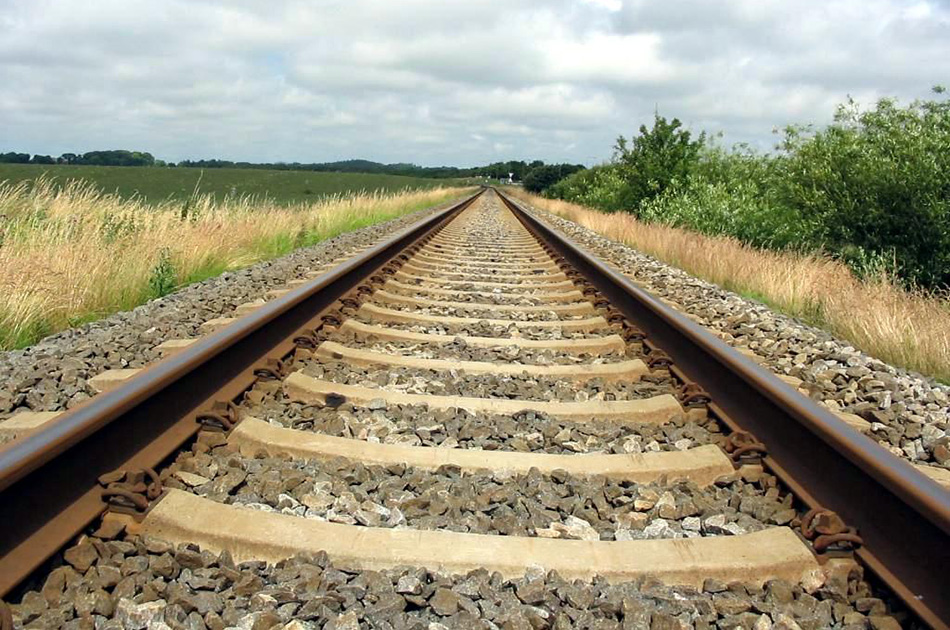
Automobile bridges
Prestressing is widely used in the construction of automobile bridges due to its many advantages. Firstly, it requires 1.5 to 2.5 times less metal than for bridges with reinforced concrete structures without prestressing. Additionally, the consumption of concrete and weight of structural components are reduced, simplifying transportation and installation of prefabricated facilities.The use of prestressed reinforcement allows for the construction of bridges using the method of hinged assembly and hinged concrete, significantly reducing construction time.
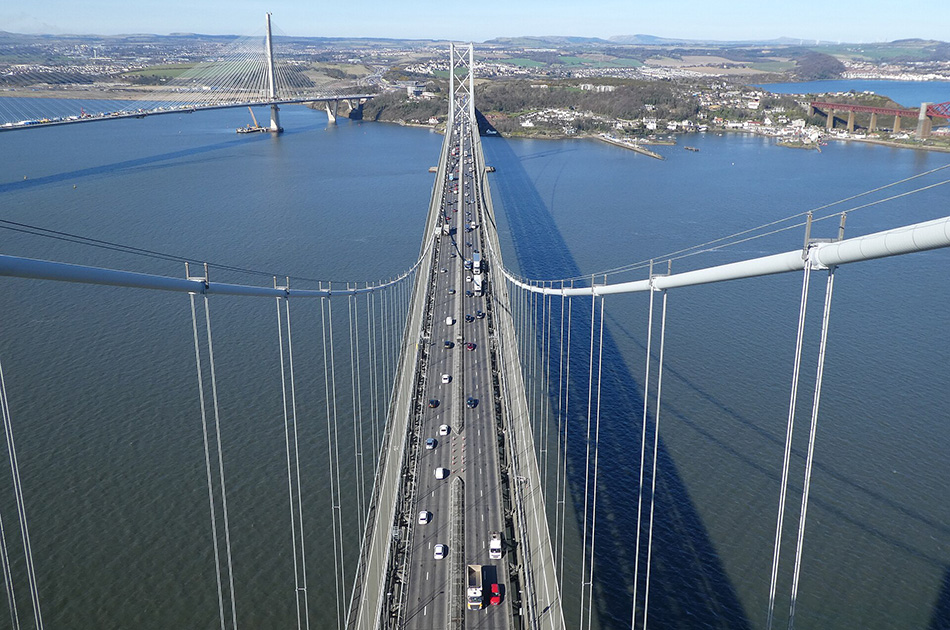
TV towers
Prestressed reinforced concrete structures are widely used in the construction of television towers. For example, they were used to erect the 554-meter tall TV tower in Toronto, which is the world’s tallest free-standing reinforced concrete structure. The simple cross-section of the trefoil tower turned out to be very convenient for conducting continuous concreting with the placement of prestressed reinforcement. The erection speed during the late 1960s was impressive, with the tower growing by 6 meters per day. It took 26 months in total to complete the TV tower, setting a record for construction speed.
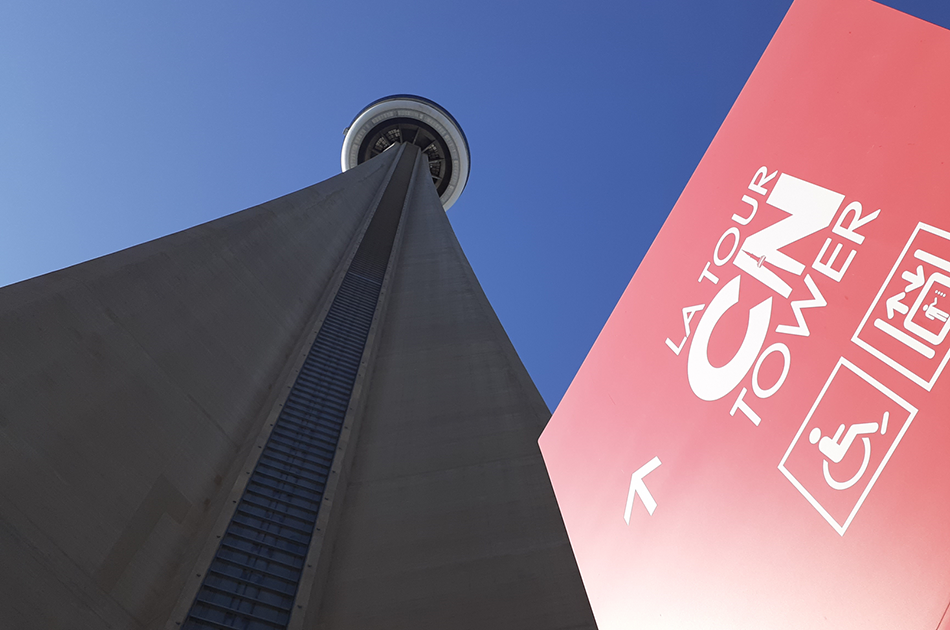
Power transmission lines
This is a simple example of how prestressed technology can be used. Thanks to it, the entire vertical load falls on massive anchor supports, preventing the high-voltage line from sagging or breaking. The intermediate supports – the pillars that we see along the entire line – bear mainly horizontal loads from the wind.
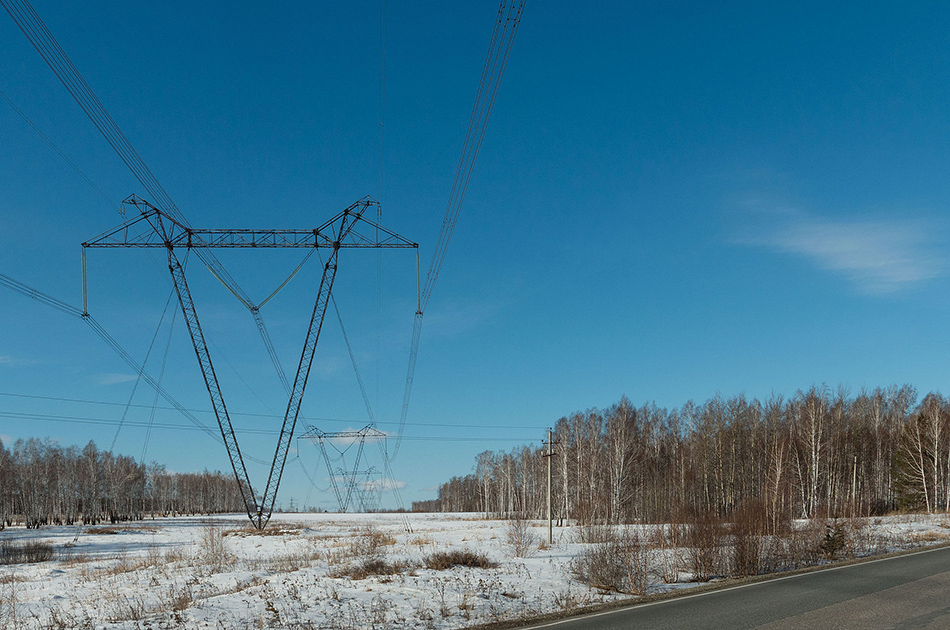
Floor slabs for houses
Prestressing technology is widely used in the construction of residential buildings. Depending on the manufacturing technology, the slabs width can reach 3 m, while their thickness – 0.22 m. In such slabs, the stretched reinforcement is tightly bonded to the concrete, which makes them highly resistant to cracking. This, in turn, ensures the strength and durability of the buildings.
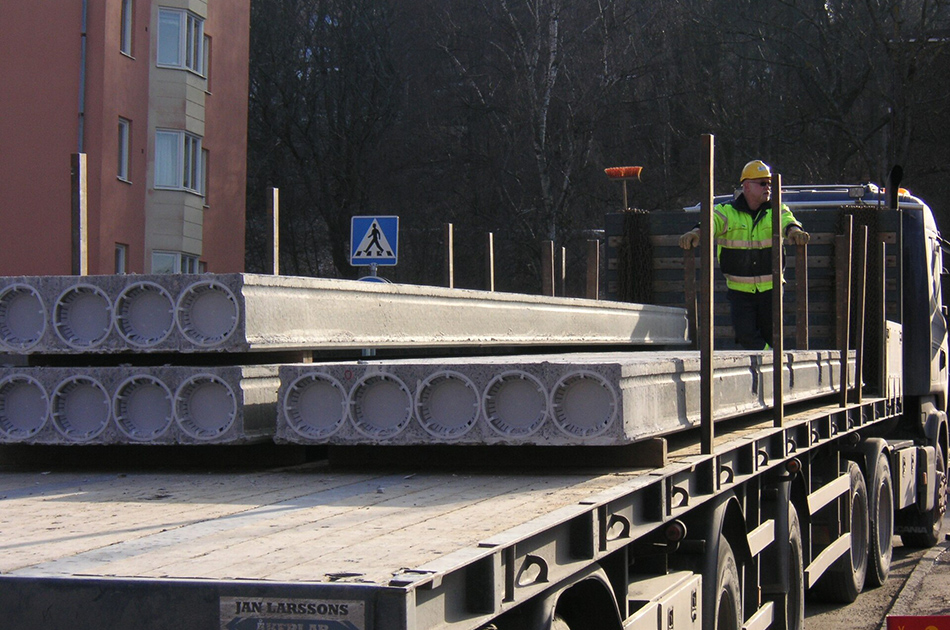
All the best is in uST technology
When creating the uST track structure, which electric rail vehicles with steel wheels run on, prestressing technology is also used. It allows you to make the track light, very strong and durable. The track structure is based on a string rail, which is a bundle of prestressed load-bearing reinforcement enclosed in a steel body and filled with a special compound inside it. This design can last for more than 50 years.
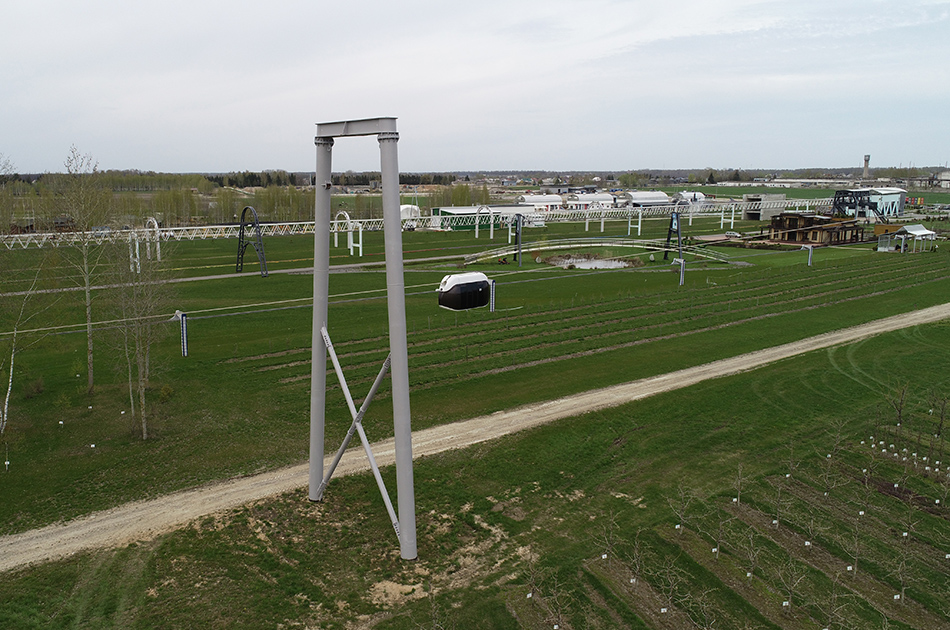
Thanks to the use of prestressing technology, the entire load falls on the anchoring structures located at the terminal stations of the complex. Therefore, the supporting towers of the track structure experience minor load and a small amount of metal is used for their manufacture. As a result, the uST complex itself is characterized by low material consumption and requires minimal land acquisition.

uST complexes use technology that has been proven effective and reliable for centuries. It has a lot of advantages and has proven itself well in the construction industry. The engineers at UST Inc. were able to perfect this technology and combine it with advanced engineering solutions of the transport sector. As a result of this integration, they created a comprehensive product that can take the transport industry to a fundamentally new level.
More news
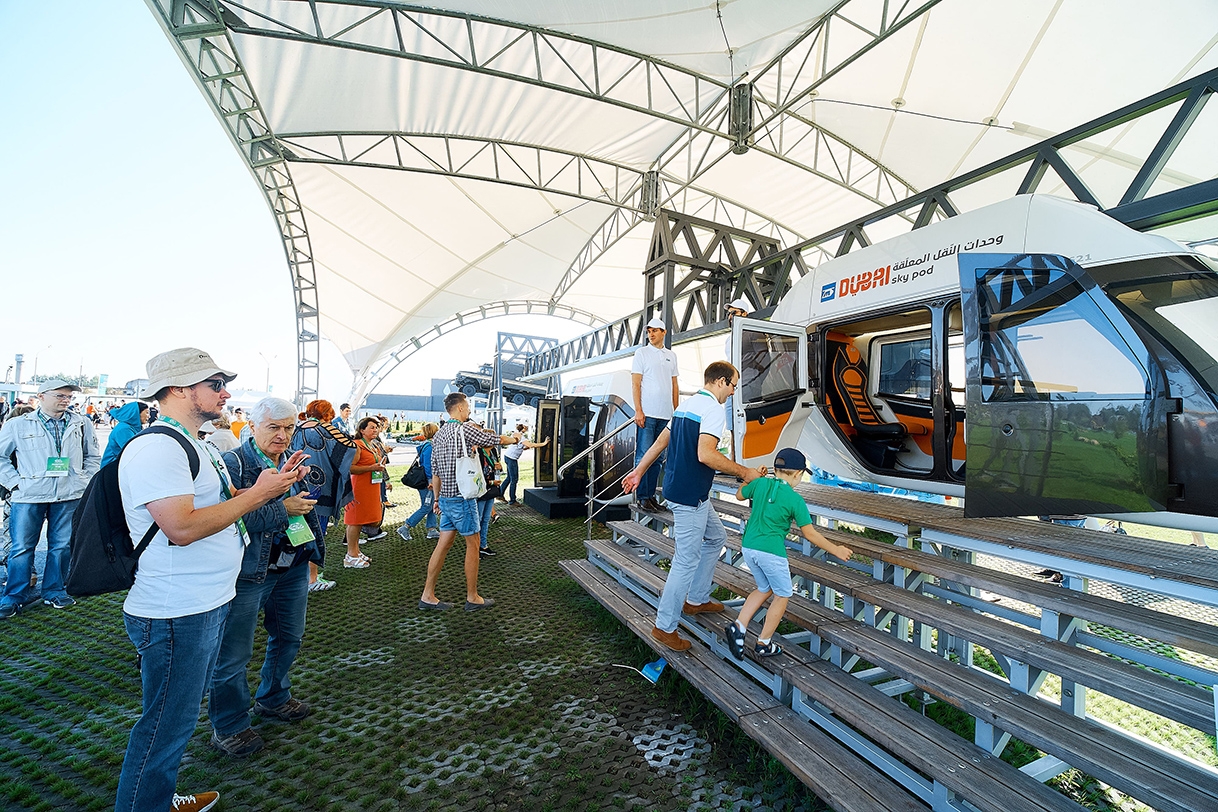
Blog
29 August 2023
uST Technology to Help Deal with Pendulum Migration
uST Solutions can be adapted to the problems of large cities and, in particular, to the optimization of transport communication based on the scale of pendulum migration. Even with the existing development it is possible to set up convenient routes along an optimal path and avoid large-scale road works.
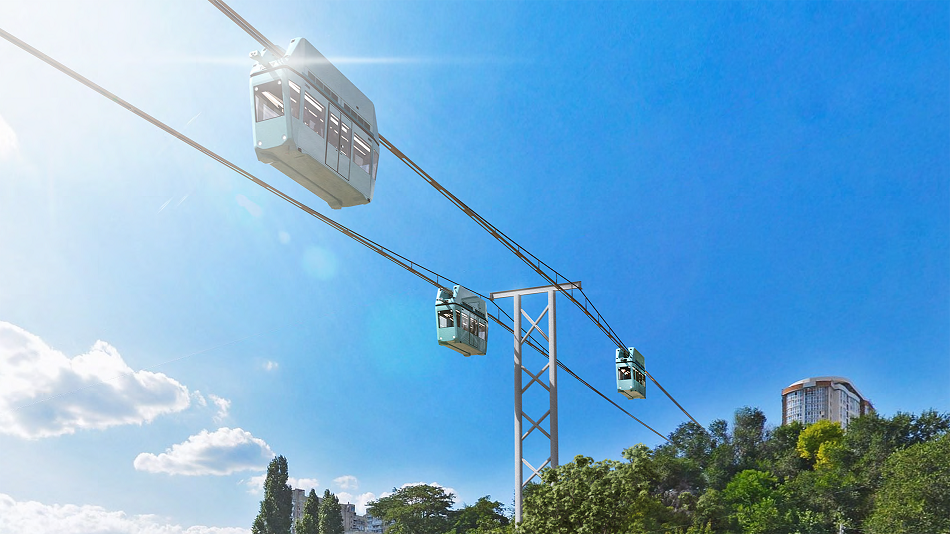
News
6 November 2025
UST Inc. has retrained its specialists
To ensure reliable and safe operation of uST rail-string transport systems, we need qualified specialists with a full range of necessary knowledge. To this end, UST Inc. has initiated a relevant training course. Once completed, we will share the results!
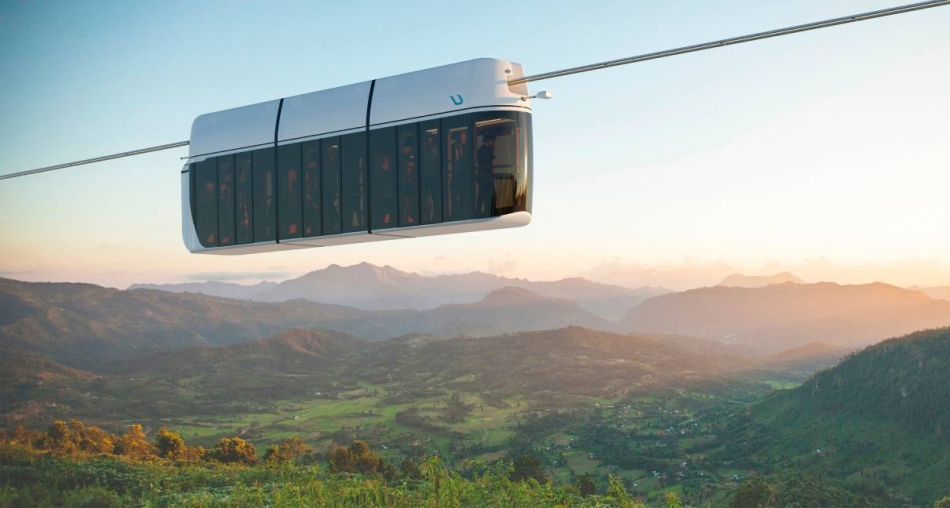
The commercial projects
15 May 2025
Video Interview on the uST Project in Nepal: Details and Prospects
In a video interview, Oleg Zaretskiy, the CEO of uScovery, unveils key details about the project in Biratnagar and shares his outlook on uST’s future in the country.

